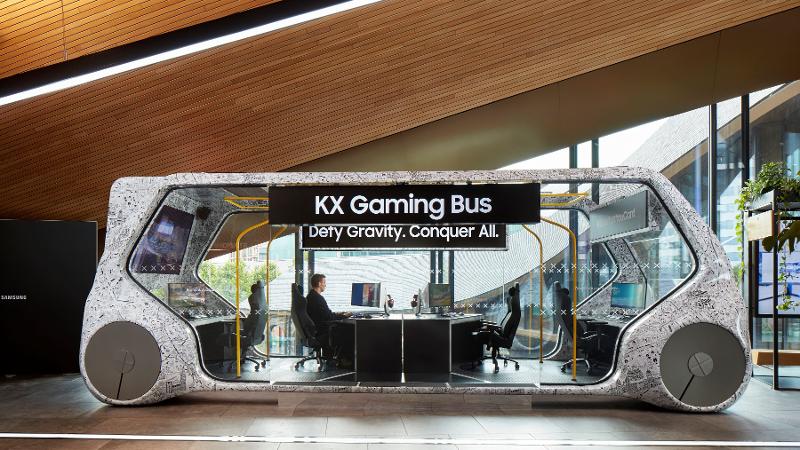Step into the world of gaming, where barriers can be broken and inclusivity becomes paramount. In a groundbreaking study conducted by Samsung Pioneers and OnePoll, the challenges faced by gamers with disabilities are unveiled. Discover the staggering impact of inaccessible features, the search for greater representation, and the powerful sense of empowerment and escapism that gaming provides for disabled players.
The Persistence of Inaccessible Features and Abandoned Games
Discover the prevalent struggles faced by gamers with disabilities due to inaccessible features, leading to the unfortunate abandonment of beloved games.
In the immersive world of gaming, disabled players often encounter persistent barriers that hinder their gameplay experience. A recent study conducted by Samsung Pioneers and OnePoll sheds light on the noteworthy fact that 81% of gamers with disabilities have struggled with inaccessible features.
These include a lack of customizable control options, making it challenging for players to adapt controls to suit their individual needs, or difficulties in reading small or blurry text within a game. Fast-paced gameplay and intense lighting effects are also obstacles that reduce accessibility for disabled gamers, forcing 39% of them to abandon games.
The Quest for Representation and Enhanced Engagement
Explore the desire of disabled gamers for greater representation in the gaming industry and the significant role it can play in enhancing engagement and gameplay duration.
A remarkable 52% of respondents in the study expressed a wish to see characters within games reflecting disabilities similar to their own. This showcases the growing demand for more inclusive representation in the gaming world.
Enhancing representation not only adds depth and authenticity to gameplay experiences but also creates an environment where disabled gamers feel a greater sense of belonging. Increased representation can substantially enhance engagement and increase the duration of gameplay sessions for disabled players, promoting inclusivity and diversity as crucial pillars of the gaming industry.
The Empowering Escape and Social Connectivity Through Gaming
Unveil the empowering and emotionally immersive nature of gaming for disabled gamers, providing them with a sense of escapism and a means of connecting with others within the gaming community.
Gaming holds tremendous transformative power, especially for disabled players. It provides an avenue for escape, allowing individuals to leave behind their real-world limitations and immerse themselves in captivating virtual realities. For 40% of disabled gamers, gaming offers a profound sense of escapism.
In addition to serving as a form of personal empowerment, gaming also facilitates social connectivity among disabled players. Around 16% of those surveyed pointed out that gaming allows them to connect with other gamers who share similar disabilities – forging important social relationships that combat feelings of isolation and provide vital support.
Moreover, gaming has become an essential part of the daily routine for 28% of disabled gamers, highlighting the indelible impact it has on their daily lives, emotional well-being, and overall sense of belonging.
The Hurdles Continued: Cognitive Overload and Dexterity Issues
Dive deeper into the remaining barriers impacting disabled gamers, such as cognitive overload caused by complex control configurations and dexterity issues stemming from poorly designed controllers.
While progress has been made to improve accessibility, disabled gamers still face hurdles that limit their gaming experiences. Among the challenges reported, 28% expressed difficulties in navigating games due to cognitive overload caused by complex control configurations and overwhelming information presented on-screen.
Additionally, 24% of disabled gamers encountered dexterity issues with controllers unsuitably designed to accommodate their ergonomic needs. These challenges reinforce the need for inclusive design principles that cater to a wide range of abilities, alleviating barriers and creating seamless and enjoyable experiences for gamers with disabilities.
Inclusive Design Solutions: A Call for Accessible Experience
Discover the features and accessibility options desired by disabled gamers, advocating for more accessory options, improved tutorials, customizable controllers, and online multiplayer options.
The gaming industry is realizing the urgent need for a more inclusive gaming landscape. Among the changes desired by disabled gamers, 34% expressed a desire for more accessory options tailored to those with disabilities, allowing them to engage in gaming on equal terms with their peers.
Accessible gameplay could be significantly enhanced by improved guides and tutorials, with 31% of respondents requesting clearer instructions to learn game controls. Additionally, customizable controller options were sought-after by another 31% of participants.
An inclusive gaming experience includes inclusive multiplayer options, ensuring that different disabilities can engage and thrive in online gaming communities. The desire for a wider range of accessibility features stands as a call to ensure the needs of all players are catered for and highlights the industry's obligation to create games that are accessible to everyone.
Conclusion
Gaming is both an escape and an empowering tool for disabled gamers, providing a sense of self-empowerment, escapism, and social connectivity. However, barriers such as inaccessible features and limited representation still persist, hindering the gaming experience for many. There is an urgent need for the gaming industry to prioritize inclusivity and work towards creating a more accessible and representative gaming landscape.
FQA
Why is representation important in gaming?
Representation in gaming is important because it allows individuals to see themselves reflected in the characters they interact with, creating a sense of belonging and authenticity. It enhances the gaming experience and promotes inclusivity and diversity within the industry.
Which games were perceived to be most inclusive and accommodating?
According to the study, the games perceived to be most inclusive and accommodating toward disabled gamers were Mario Kart and Grand Theft Auto.
What solutions do disabled gamers desire for inclusivity in games?
Disabled gamers desire more accessory options tailored to their abilities, improved tutorials, customizable controllers, and inclusive multiplayer options. These features would enhance accessibility and create a more enjoyable gaming experience for everyone.

